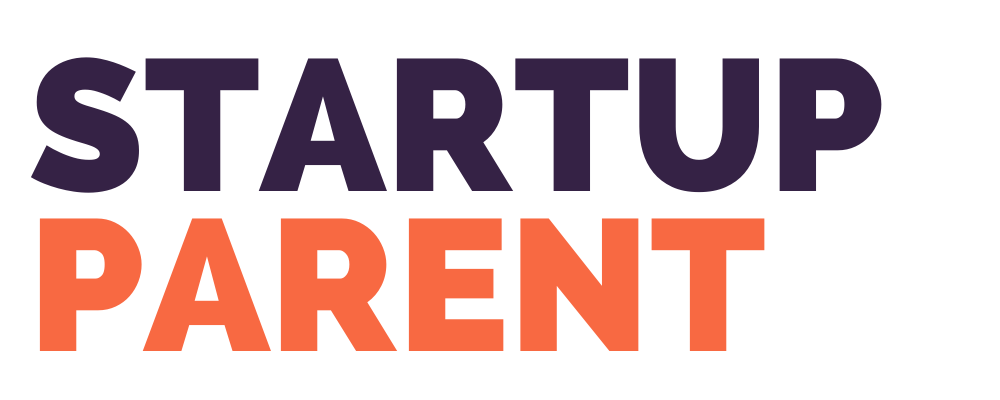What does it take to change the Recruitment and Executive Search industry within Financial Services? Today we get to interview Dominie Moss, founder of The Return Hub, an executive search firm that connects employers with professionals who have taken a career break.
How is today going for you?
DOMINIE: The day has been pretty frantic. We were asked to participate in Pitch@Palace, which is the Duke of York’s Accelerator Program, where he supports entrepreneurs in the UK. We got involved a bit last minute and it was an extraordinary experience – the big day was yesterday in Nottingham. However, it’s been frantic preparing for this, as well as juggling clients, candidates, and the business. These are all good problems to have and I think all startups go through this teething phase. When I was setting up the business, I thought I could do the school run, pick up the kids from school, and now I look back and think: “Wow, I was naive.”
“I was in Nottingham yesterday and there were 42 companies, all startups. And there was a sign in one of the rooms that said “For Entrepreneurs and Elevators only” – it was a place you could go to talk about your pitch. I was talking with a colleague about it and told them “I see the word entrepreneur and I don’t self-identify with it.” It isn’t a word I can relate to. Entrepreneur feels like this grand assumption. Perhaps it’s the impostor syndrome.” – Dominie Moss
Can you tell me a little bit more about The Return Hub?
The Return Hub is a Financial Services Recruitment Firm that places women back into the workforce after a career break. We are filling what we know is a huge gap in the current Recruitment and Executive Search industry by working with professionals who have a gap in their resume. It just so happens that most people that have a gap in their employment history are women and the reason is often because they are caring for children and/or parents. The other challenge within our industry is that the Executive Search firms don’t find you if you’re not currently employed. This is the reason The Return Hub exists – we place people that have had a gap in their employment, and that are not currently employed, back into jobs.
When did you start the company? How is it going?
We officially launched in October 2016. Within three months we put seven people back in work, five into a Return to Work Program and two into full-time jobs. We have just agreed terms with two big UK household names, and we’re also working with some fantastic smaller businesses.
What are your ambitions for the next year?
I’ve been an employee for twenty years and I have found the experience of launching a business fascinating. I’m having to learn new skills all the time and it’s been incredibly rewarding. I want to continue doing what we’re doing – working with a small number of clients, doing it well, making it easier for more firms to run their own Return to Work programs, and placing people back into permanent jobs.
On a longer term basis, I need to figure out how we can scale the business. This question is taking up a lot of my headspace, but I think we need to get to the end of this year to figure out what the answer is. Over the last couple days, I’ve realized that if I don’t have the answer to something, I should wait and it will probably make sense further down the track.
Do you call yourself a founder or a CEO?
I call myself a founder. I don’t call myself a CEO because that sounds very hierarchical and we are a small business. Fine if other people do, but for me, it feels a bit too much.
How do you find these women in the first place?
DOMINIE: They have to find us. We launched the website in August, and we’ve marketed that through traditional and social media. We’ve written tons of content, (we’ve been in the Telegraph, The Financial Times, the radio, etc), and I’ve also used my own professional network. I was a headhunter for 15 years, and worked in the city for 20 years, so I have a well established network. A lot of the candidates come to us through word of mouth. In essence, we raise the flag and say “We’re here, we’re doing this, come and sign up with us.” There is a lot of interest from the media on the topic of returners and in the UK Government’s last Budget the Chancellor announced a £5m fund to support Returnships in the UK, so there is a lot of momentum.
“We can’t promise to get everyone a job, that would be unrealistic. At the very least, I believe, we’re campaigning on behalf of women who have a career gap in their employment history. So when their resume lands on a hiring manager’s desk, whether through us or other means, I would like that hiring manager to look at it twice, and not put it aside because there is a gap.” – Dominie Moss
What are the unexpected benefits and talents of hiring women with a career gap? Why does hiring these women benefit businesses?
When women spend time out of the market, they acquire new skills. For example, they acquire patience, perspective, and a totally new network, whether through their children’s school or any other work that they may be doing. These women are not sitting in cold storage for years; they are busy doing other stuff. They could be treasurers of a charity, school governors, in the PTA, have started a business, or they’ve gone abroad for a partner’s work. The skills they acquire while doing these things are very valuable to a business.
The other skill that they have is a real desire to be part of a team and to be engaged in the world of work again.They want to be doing interesting and challenging work and to be part of a team. I think that level of engagement and motivation is a compelling opportunity for any business.
Have you seen the American Greetings viral ad campaign called world’s toughest job?
You have to google it.
What are the struggles that people having a gap face?
There is a lack of confidence for many. They wonder if they can they still do it, if they are still relevant. However, most people that have taken a break and go back to work find that they regain their professional confidence within weeks, if not days.
The other challenge is that there are no clear paths back to work. There are about 30 firms in the UK that run Return to Work programs. In the grand scheme of things, that’s really a drop in the ocean.
What’s the market size like? There are probably so many women looking to go back to work.
PWC did a recent study that said there are 427,000 professional women on a career break who want to return to work. Many of them might be on maternity leave and going back anyway, but the market is huge. The number of applications that the Return to Work programs get goes into the hundreds.
When will companies “get it” that this is an amazing untapped market opportunity?
There needs to be some research done into evaluating the success of the Return to Work programs, and we need data around the skills that these people have and how useful and valuable they are to businesses. This will enable us to talk to other employers about it in a more powerful way. Mind you, the first programs started here in 2014, so they are still pretty new.
My hope is that this becomes an embedded way of hiring people. Maybe companies will mitigate the perceived risk of hiring someone with a gap in their resume, by bringing them in on a contract basis with a package of support for the first three months. Or perhaps companies will plug them into permanent positions and offer them support for those first 90 days.
What was your experience like, having children and working?
I didn’t have a career break, I did take a maternity leave for both children of about six to seven months. My story is probably very similar to other moms who work outside the home: I’m constantly trying to juggle work, kids, and everything else. I’ve learned that there is no perfect scenario. It all feels compromised, and that’s just life. Anyone who is looking for the perfect balance might find themselves looking for a long time.
What drives you?
I’m driven by the fact that when I look around the city and the square mile, where I work, I notice that there are fewer and fewer people that look like me. I wonder: Where have they all gone? I went to my first diversity breakfast about 15 years ago in Canary Wharf, and since then, there’s been a lot of initiatives like maternity coaching, career coaching, mentorship, and networking to try to solve for the lack of women in the mid and senior level. All of this is wonderful, but none of it is moving the needle in a meaningful way.
“For financial services to achieve what it’s setting out to achieve, you need decisive and constructive leadership at the top to say this is what we’re going to do, and have them do it. At the end of the day, it’s about retaining and hiring. We’re trying to help with the hiring bit.” – Dominie Moss
Why should men care about this?
If we can have successful stories of women who can work flexibility and organizations that accommodate that, it’s great for guys out there who want to work more flexibly and see their families. It’s probably still hard for guys to say “I want to leave early on a Thursday, or I want to do pickup on a Tuesday”. I see this movement as something that has huge benefits for everyone.
Why is this important for the younger talent?
Well, businesses need to think about how to make the world of work look great for younger people. Do they want the young people looking at an organization, seeing mainly old guys, who work crazy hours?
It’s not just a diversity issue, it’s a core business priority for organizations to get this stuff sorted out. Once they accept that group decisions benefit from diverse opinions, they have to find out how to get those diverse opinions around the table.
How did you mindset change about work once you had babies?
If I’m going to be at work, it’s got to count for something. If I’m going to be away from my kids, it’s got to mean something. I’m not going to waste time, I’m going to get my stuff done so that I can go home at the end of the day.
Do you have any supportive practices you’ve taken on during the journey into motherhood and entrepreneurship?
I’m hoping that time will come.
ABOUT DOMINIE:
Dominie Moss has spent 20 years working in financial services, first as a commodities trader and then for 15 in Executive Search. Last year, she founded The Return Hub to fill a significant gap in the executive search market. She lives in London and is the mother of two sons.
ABOUT THIS SERIES
This essay is part of the Startup Pregnant Interview Series asking women and men about what it means to birth new businesses, grow in leadership at work, and bring new people into the world.
These interviews seek out the personal details as a way to inspire new thinking about what it means to be pregnant, to go through physical and emotional transformations, what it means to be your most creative self, and how that influences work as we understand it today. Outdated cultural thinking about what work looks like and traditional gender roles leave both men and women tired and searching for a different kind of meaning.


